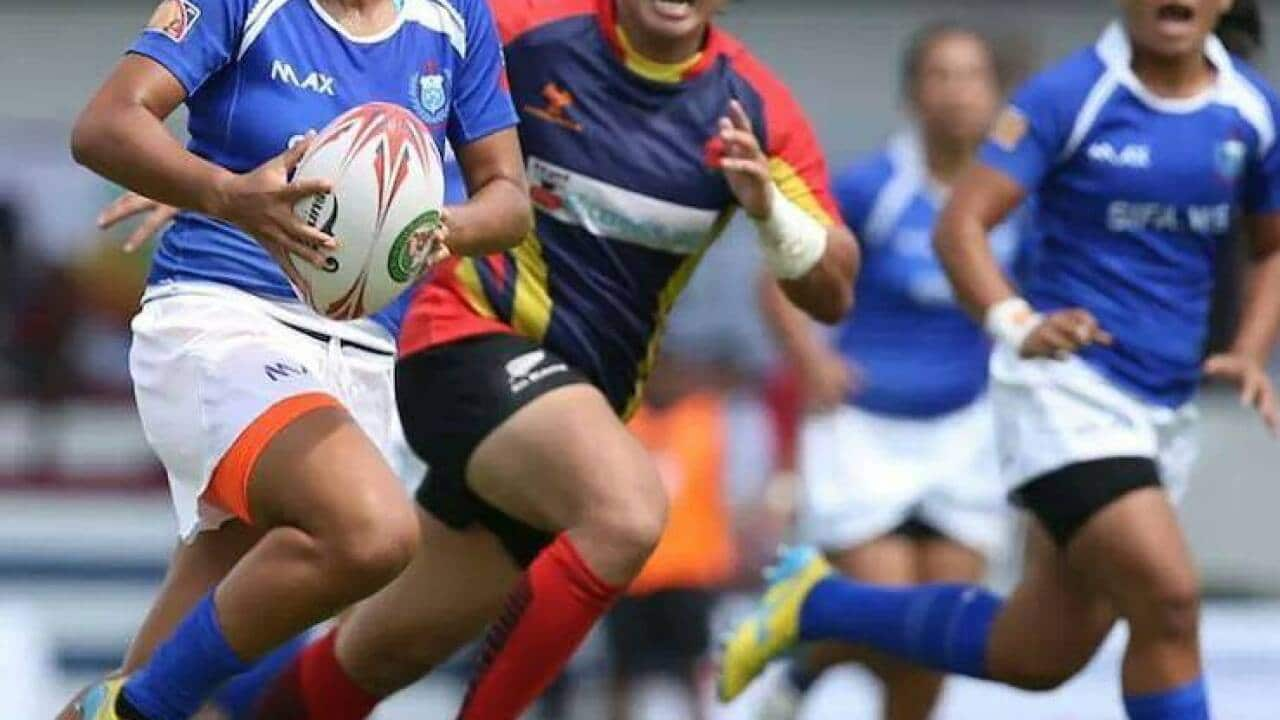Prevention, rather than helping women after they've suffered at the hands of a partner, is the next step for global agencies in the fight against domestic violence across the Pacific Islands.
Recent surveys show more than 60 per cent of women in the region have experienced violence from an intimate partner or family member.
"Prevention means that we don't have to address it in the end because we've already prevented it in the beginning," UN Women Samoa Country Coordinator, Mele Mauala, told SBS World News.
"Prevention is something that hasn't been funded dramatically within the Pacific region - it's mainly been service providers making sure that women, after the fact, are taken care of," she said.
On the sidelines of this month’s Pacific Islands Forum, Australia signed an agreement worth almost $20 million (€13m) with the European Union and the United Nations to help tackle the root causes of gender inequality and violence against women and girls in the Pacific.
“Pacific leaders have acknowledged that gender inequality is imposing a high personal, social and economic cost. The time to act is now,'' said Pierre Amilhat from the European Commission’s Department for International Cooperation and Development.
Australia has promised more than $6.5 million (€5m) as part of the deal for Fiji, Kiribati, Papua New Guinea, the Republic of Marshall Islands, Samoa, Solomon Islands, Timor-Leste, Tonga, Tuvalu and Vanuatu.
“Domestic violence regrettably is a very serious issue in the Pacific,” Minister for International Development and the Pacific, Concetta Fierravanti-Wells, told reporters in Apia during the Pacific Islands Forum earlier this month.
“A complexity of issues has resulted in some of the highest domestic violence levels in the world.
“We try and assist women in particular to help empower them, to help them start businesses, to help them do this sort of thing that helps them help their families, help their communities,” she said.
The power of sport to raise awareness
UN Women is playing a leading role in countries like Samoa where the notion prevails, particularly in rural areas, that men have a good reason to beat their wives as punishment.
“More often than not you’ll see that young girls are raised to believe that their mother deserved the abuse if she burnt the food, if she didn’t do her chores,” Ms Mauala said.
“If people believe that a punishment is deserved, i.e. it’s punitive, then it’s considered acceptable and we’re trying to change that attitude because we’re trying to make people conscious of the fact that no violence is acceptable.”
Cultural concepts like 'fa’asamoa' make that difficult.
“The reality is that when it happens in Samoa, it’s combined with the fact that we also have 'fa’asamoa' – a cultural practice where you’re supposed to respect people in leadership roles.
“Those who are in leadership roles are often the ones who decide how punishment is meted out,” she said.
UN Women has teamed up with Samoa Rugby Union to use sport as a tool to raise awareness and empower women and girls.
“There’s a lot of players that I’ve been working with that have problems with their husbands, have problems with their ex-boyfriends," Samoa Rugby Union coach, Filoi Eneliko, told SBS World News.
"There’s a lot of problems like that but having these tournaments gives them the chance to prove to men that they can walk away from them, they can do whatever they want to do, they’re not their bosses," she said.
Ms Eneliko is also using rugby to educate boys and young men about domestic violence and make sure the next generation is part of the solution.
“It’s not right to beat their wives when they grow up,” she said.













